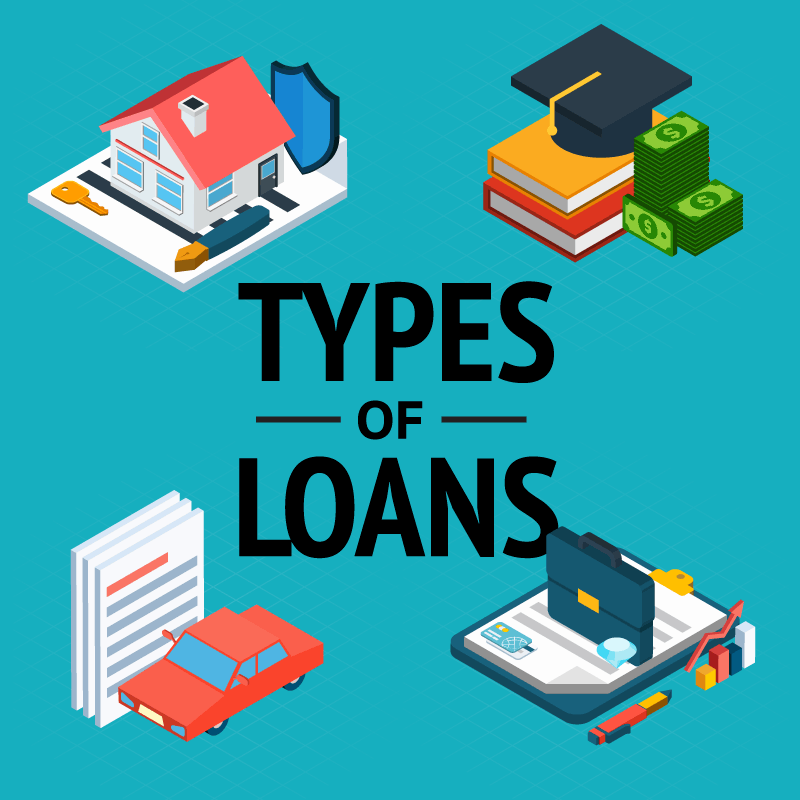A Comprehensive Guide to Home Loans: Provider and Options Explained
Charting the globe of home mortgage can be intricate. Different alternatives exist, each with unique functions and effects for prospective homeowners. Comprehending the differences in between government-backed and standard car loans is essential. The application process includes thorough paperwork and pre-approval actions that many neglect. As debtors commence on their home-buying journey, understanding exactly how to take care of these obligations properly can mean the difference in between economic security and difficulty. What approaches can equip them on this path?
Comprehending Home Loans: Types and Terminology
Recognizing the different kinds of mortgage and their linked terminology is important for prospective homeowners, as it outfits them with the understanding required to make educated financial decisions. Mortgage can be extensively categorized into adjustable-rate and fixed-rate home loans. Fixed-rate mortgages keep a regular passion rate over the life of the finance, giving security in month-to-month repayments. Installment Loans. Conversely, variable-rate mortgages feature interest prices that may vary after a preliminary fixed period, possibly resulting in reduced initial payments however raised future expenses
Extra terminology is necessary for clearness. Principal refers to the financing quantity borrowed, while rate of interest is the price of loaning that amount. The regard to the loan suggests its period, commonly ranging from 15 to 30 years. Comprehending these essential ideas enables prospective customers to navigate the facility landscape of home financing, guaranteeing they choose the best car loan option that lines up with their economic situation and long-term goals.
Standard Financings vs. Government-Backed Loans
A considerable difference in home financing exists between government-backed car loans and traditional finances, each dealing with different debtor demands and circumstances. Traditional fundings are not insured or ensured by the federal government and normally require greater credit history scores and down repayments. They are often interesting customers with steady financial histories, as they might offer affordable rate of interest and terms.
In contrast, government-backed financings, such as FHA, VA, and USDA lendings, are designed to assist specific teams of consumers, including newbie buyers and professionals. Cash Advance. These financings usually include reduced down repayment requirements and more adaptable credit rating criteria, making them available to a more comprehensive series of individuals
Eventually, the option in between government-backed and traditional finances depends upon the borrower's economic circumstance, long-term objectives, and qualification, making it vital to thoroughly assess both alternatives before deciding.

The Function of Rate Of Interest in Home Financing
Rate of interest prices play an essential duty in home funding, affecting consumers' decisions between variable and fixed rate loans. The choice in between these options can greatly affect monthly payments, affecting overall affordability. Recognizing how rate of interest operate is necessary for any individual maneuvering through the home mortgage procedure.
Taken Care Of vs. Variable Rates
Homebuyers encounter a vital choice when selecting in between repaired and variable prices, as this option significantly impacts the expense of financing with time. Fixed-rate home loans use stability, locking in an interest price for the life of the finance, which can be advantageous in an increasing interest price environment. This predictability allows house owners to budget plan better. Alternatively, variable-rate mortgages, or adjustable-rate mortgages (ARMs), commonly begin with lower first prices that can vary based upon market conditions. While this may result in reduced initial repayments, consumers deal with the danger of raised rates in the future. Eventually, the option in between variable and fixed prices depends on private economic situations, danger resistance, and assumptions concerning future passion price trends.
Effect On Month-to-month Settlements
When assessing home funding alternatives, the influence of rates of interest on regular monthly settlements is a crucial factor to consider. Rates of interest straight affect the total price of loaning, affecting just how much a debtor will certainly pay every month. A lower rates of interest lead to smaller sized month-to-month payments, making homeownership much more affordable. Alternatively, higher prices can considerably boost month-to-month responsibilities, possibly stressing a home owner's spending plan. In addition, the financing term plays an important role; longer terms may spread repayments out but can cause paying even more rate of interest gradually. Recognizing exactly how passion rates communicate with finance quantities and terms is necessary for debtors to make enlightened financial choices and choose a home loan that lines up with their lasting monetary objectives.
Home Loan Brokers vs. Direct Lenders: Which Is Right for You?
When thinking about a home mortgage, prospective borrowers have to understand the distinct duties and responsibilities of home mortgage brokers and direct lenders. Each alternative provides its very own advantages and negative aspects, which can considerably affect the overall expense of financing. An informed selection requires cautious analysis of these factors to establish the very best suitable for individual needs.
Duties and Responsibilities Defined
Maneuvering the complexities of home funding calls for a clear understanding of the roles and responsibilities of home mortgage brokers and straight lenders. Home loan brokers work as middlemans, connecting debtors with lending institutions. They examine a customer's economic situation, curate financing alternatives, and overview customers through the application process, frequently leveraging several loan provider partnerships to secure positive terms. Alternatively, direct lenders, such as banks and credit history unions, offer loans directly to debtors. They manage the entire lending process, from application to funding, with a focus on their own items. Each option presents distinct avenues for obtaining financing, making it this link vital for customers to assess their choices and requirements when making a decision between involving a home mortgage broker or dealing with a straight loan provider.
Advantages and disadvantages Comparison
Choosing in between a home loan broker and a direct lender can significantly impact the home financing experience, as each option offers one-of-a-kind benefits and disadvantages. Home loan brokers function as intermediaries, offering access to multiple lending institutions and possibly much better rates, while simplifying the lending process. Nonetheless, they might charge fees and rely on payment structures that could affect their suggestions. On the various other hand, direct loan providers streamline the procedure by providing internal loans, which can bring about quicker authorizations and less issues. Conversely, they might have a limited option of items and less flexibility pertaining to prices. Inevitably, the choice depends upon private choices, financial situations, and the wanted level of assistance throughout the mortgage trip.
Cost Effects Evaluated
While evaluating the expense ramifications of mortgage brokers versus straight lending institutions, possible homeowners must think about various variables that can substantially affect their general expenditures. Home mortgage brokers normally bill fees for their solutions, which can vary significantly, affecting the overall financing cost. Nonetheless, they usually have access to a larger series of finance items and competitive rates, possibly conserving customers cash in the future. Alternatively, straight loan providers may use an extra straightforward procedure with perhaps reduced ahead of time prices, however their car loan choices may be limited. It is important for house owners to contrast rates of interest, fees, and terms from both lending institutions and brokers, guaranteeing they make an educated choice that aligns with their financial goals and needs.
The Mortgage Application Process: What to Anticipate

The home mortgage application process can typically feel daunting for many applicants. It usually starts with collecting essential documents, including evidence of income, credit history, and personal identification. Lenders use this information to analyze the applicant's monetary stability and figure out loan qualification.
Next, applicants submit an official application, which might entail completing online forms or giving information personally. Throughout this stage, lending institutions assess various aspects, such as debt-to-income proportion and credit scores score, to pick finance terms.
When pre-approved, the lender will certainly conduct a complete evaluation of the home to ascertain its worth lines up with the lending amount. This stage might additionally consist of additional background checks.

After last authorizations and problems are fulfilled, the lending is processed, causing the closing phase. Comprehending each step empowers candidates, making the journey smoother and a lot more convenient as they approach homeownership.
Tips for Managing Your Home Mortgage Properly
Effectively maneuvering the mortgage application procedure is simply the beginning of a liable economic journey. Taking care of a home mortgage calls for interest to several key techniques. First, borrowers should develop a clear budget plan that suits month-to-month home loan repayments, property tax obligations, Payday Loans and insurance. Routinely reviewing this budget plan helps stop overspending and warranties prompt repayments.
Additionally, making added repayments when feasible can substantially minimize the car loan principal and total interest paid gradually. Customers should additionally maintain open lines of communication with their lender, particularly in times of economic difficulty. This can result in prospective solutions such as funding alterations or refinancing options.
It is advisable to keep an eye on credit scores frequently. A great credit history can offer chances for far better loan terms in the future. Payday Loans. By adhering to these tips, property owners can navigate their car loan obligations effectively, guaranteeing long-term economic wellness and security
Regularly Asked Questions
What Are Closing Expenses and Just How Are They Determined?
Closing expenses incorporate charges connected with wrapping up a mortgage, including evaluation, title insurance policy, and funding source charges. These expenses typically range from 2% to 5% of the car loan amount, varying based on location and lender.
Can I Qualify for a Home Mortgage With Bad Debt?
Yes, individuals with bad credit scores can get approved for a home finance, though options might be limited. Lenders often call for higher deposits or rate of interest, and exploring government-backed fundings may improve chances of authorization.
What Is Mortgage Insurance policy and When Is It Called for?
Home mortgage insurance coverage shields lending institutions against default and is typically called for when a debtor makes a down repayment of less than 20%. It ensures that loan providers recoup losses if the borrower fails to settle the funding.
How Does Refinancing Work and When Should I Consider It?
Refinancing involves changing an existing home mortgage with a new one, usually to safeguard a lower passion rate or adjustment funding terms. Property owners need to consider refinancing when passion rates drop considerably or their monetary situation enhances.
What Takes place if I Miss a Home Mortgage Payment?
If a home loan repayment is missed out on, the lending institution generally examines late charges, reports the delinquency to credit score bureaus, and might start repossession process if payments remain to be overlooked, ultimately endangering the house owner's building.
Fixed-rate mortgages preserve a regular passion price over the life of the lending, providing security in month-to-month settlements. A substantial difference in home funding exists in between traditional car loans and government-backed fundings, each catering to various debtor requirements and situations. In comparison, government-backed loans, such as FHA, VA, and USDA fundings, are developed to help certain teams of customers, consisting of first-time property buyers and veterans. Passion prices play a crucial function in home financing, influencing debtors' decisions between fixed and variable read review price financings. Fixed-rate home mortgages use security, securing in an interest price for the life of the funding, which can be beneficial in a climbing interest rate atmosphere.